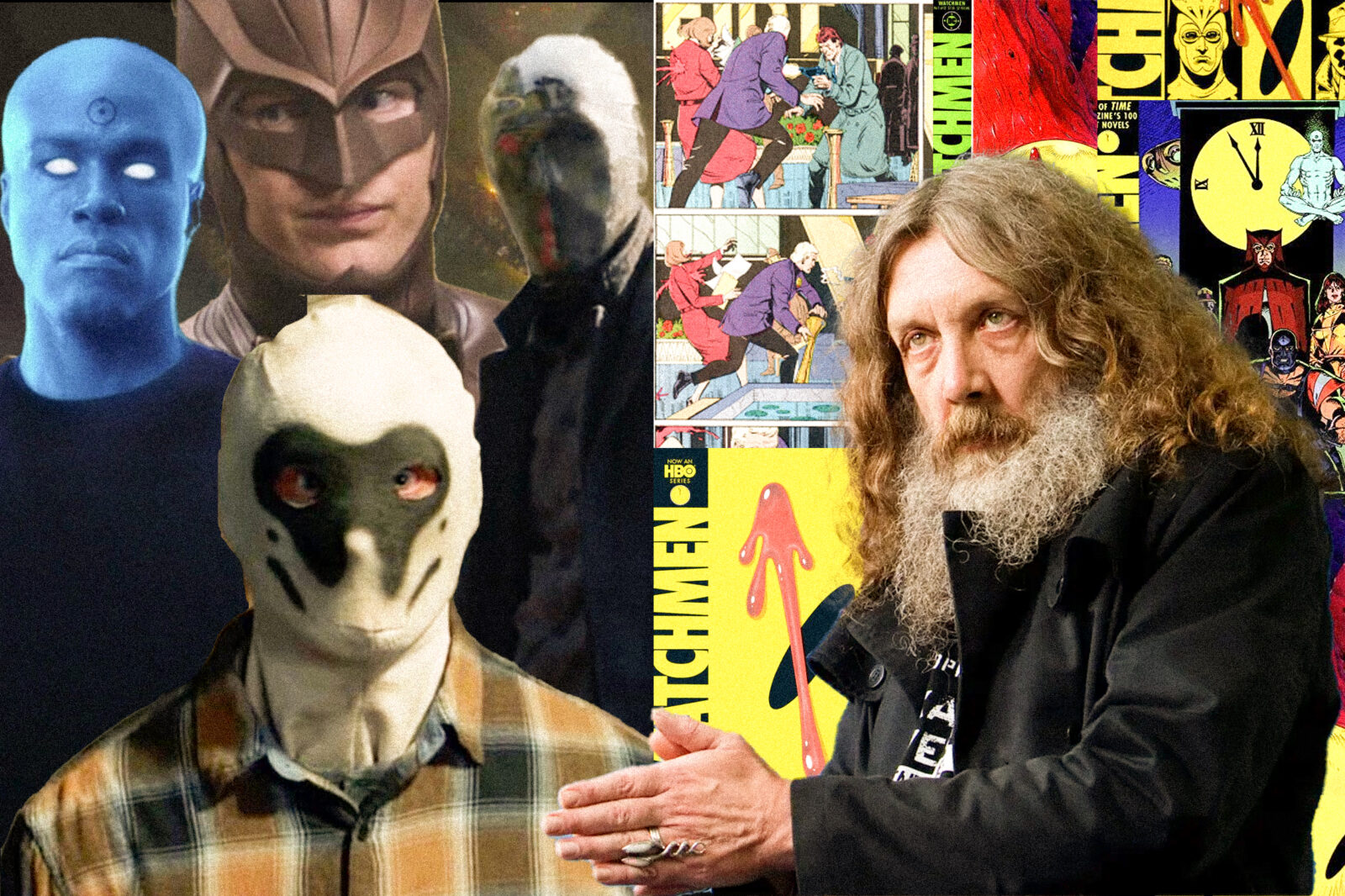
Alan Moore is probably the best comic book writer of all time. His gift for writing great comics is matched only by his hatred for their cinematic adaptations. Whether it’s Watchmen, V for Vendetta, From Hell or The League of Extraordinary Gentlemen, Moore has always been adamant in his distaste for the broader, non-comic book reading public’s consumption of his stories.
If you’re a fan of Moore’s work, you probably know this. The guy gets asked about it all the time, and his opinion has remained consistent. But GQ asked again, so the 68-year-old writer graciously (by his standards) gave them a piece of his mind.
“I would be the last person to want to sit through any adaptations of my work,” he told the magazine. “From what I’ve heard of them, it would be enormously punishing. It would be torturous, and for no very good reason. There was an incident—probably a concluding incident, for me.”
That incident turned out to be correspondence with a person who is not named but is almost certainly Damon Lindelof, the man behind Lost, The Leftovers and 2019’s critically acclaimed Watchmen sequel/spin-off. Since Warner Bros. owns the rights to Watchmen and pretty much everything else Moore ever created in the superhero comics sphere, nobody has to ask his permission to make movies or TV shows out of them (if that sounds unfair to you, maybe you’re starting to see why Moore doesn’t have any interest in the adaptations of his work). Nevertheless, Moore says Lindelof reached out anyway. Sounds like things didn’t go great. Moore characterized Lindelof’s letter as “neurotic rambling.” He continued:
I think it opened with, “Dear Mr. Moore, I am one of the b******s currently destroying Watchmen.” That wasn’t the best opener. It went on through a lot of, what seemed to me to be, neurotic rambling. “Can you at least tell us how to pronounce ‘Ozymandias’?” I got back with a very abrupt and probably hostile reply telling him that I’d thought that Warner Brothers were aware that they, nor any of their employees, shouldn’t contact me again for any reason. I explained that I had disowned the work in question, and partly that was because the film industry and the comics industry seemed to have created things that had nothing to do with my work, but which would be associated with it in the public mind. I said, “Look, this is embarrassing to me. I don’t want anything to do with you or your show. Please don’t bother me again.”
Moore’s complaint against the superhero industrial complex is multifarious. On the one hand, the industry chewed him up and spit him out with nary a thank-you, more than happy to profit on his talent with no regard for compensating him fairly or treating it as he wished. But he’s also just not a fan of superheroes in general, a fact that should be abundantly clear to anyone who actually reads Watchmen, and is dismayed by their pop culture dominance — a dominance many associate with his own work.
“It seemed to me that what people were taking away from works like Watchmen or V For Vendetta wasn’t the storytelling techniques, which to me seemed to be the most important part of it,” he said elsewhere. “It was instead this greater leeway with violence and with sexual references.”
Whether or not you like HBO’s Watchmen show, Zach Snyder’s splashy cinematic adaptation or any of the other works made out of Moore’s raw material, it’s hard not to sympathize with his point here.






















